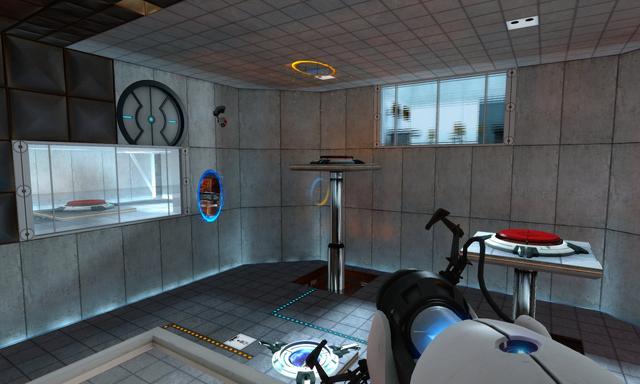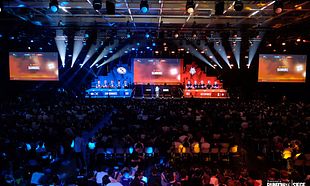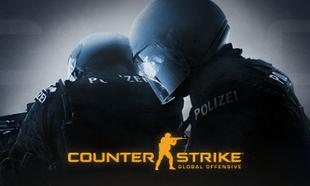Valve are the closest gaming has ever had to a Studio Ghibli, and 'Portal' proved that whenever even their smaller-scale games can be just as engrossing as the adventures of Gordon Freeman.
Before they focused on selling hats for 'Team Fortress 2', the release of a new Valve game brought the industry to a standstill, and the release of 'The Orange Box' in 2007 was one of those landmark events.
'The Orange Box' had all the razzmatazz, pomp and circumstance as a major summer festival, and for good reason.
The headline act was the thrilling conclusion of the 'Half-Life 2' saga, and the majority of people who picked up 'The Orange Box' were playing it for the sublime beauty of 'Half-Life 2: Episode 2' and its gut-punch ending.
Being able to play the full 'Half-Life 2' experience under one roof was extraordinary in itself and the headline act was worth the price of admission alone, but Valve weren't satisfied.
'Team Fortress 2' is still the gold standard for team-based first-person shooters 15 years later, and still manages to feel fresh all these years later.
A robust fan community means that you can still hop on a server and find a full house.
The chaotic, cartoony nature and class-based combat made it a precursor to the likes of 'Fortnite', but the biggest surprise of 'The Orange Box' was the addition of 'Portal'.
A quirky first-person platform puzzler that was obstinately added to the package as a stocking filler ended up becoming a landmark in game design and narrative.
The surprise success of 'Portal' is unlike anything else because 'The Orange Box' was such a novelty - here was Valve releasing 5 big games for the price of 1 - and the smallest game of the lot ended up having a profound impact on gaming.
When the initial hype surrounding 'Half-Life 2: Episode 2' died down, it was the plucky 'Portal' that took the gaming landscape by storm.
Thinking with portals
2007 was something of a miracle year for gaming with the likes of 'Halo 3', 'Call Of Duty 4', 'Super Mario Galaxy', 'Crysis', 'Mass Effect' and 'Bioshock', but it was the high-brow yet droll comedy of 'Portal' that won over fans and critics alike.
In the winter of 2007, 'Portal' fans became the biggest cheerleaders on the internet, and you could barely mention the word "cake" on online forums without it turning into a 'Monty Phyton' style in-joke fest.
'Portal' took on a life of its own incredibly quickly in a way we haven't seen before or since.
When Valve threw the entire studio and a bigger budget at 'Portal 2' in 2011 it had the distinct feeling of an indie band being given a major record contract and losing some of its soul in the process.
To use a pretentious music journalist metaphor, the original 'Portal' was 'Unknown Pleasures' and 'Portal 2' was 'Closer'.
Both are fantastic albums in their own right, but there is something special about the original 'Portal' that is paradoxically easy and difficult to quantify.
It is easy to figure out why 'Portal' struck a chord with gamers; it was a bitterly funny game with impeccable level design and it made you feel smart for figuring out the game's puzzles.
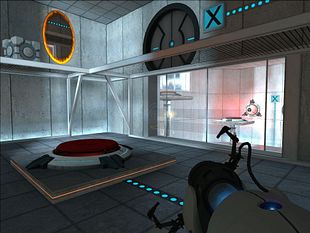
In the more abstract sense, there is a Stanley Kubrick quality to the game's Apple-style sterile environments, and the classic Valve approach of only giving players breadcrumbs about the game's overarching narrative that kept players coming back.
On top of that, the game was capped off by perhaps the best song in video game history.
If gaming had a category for Best Original Song at the Oscars, 'Still Alive' would have won the award for 2007 and possibly the lifetime achievement award.
It's a bitter and sardonic recap of the game's plot but is also what would happen if a Will Smith end credits rap song became self-aware.
The Jonathan Coulton song was the icing on top of the cake (in this context, pun fully intended.)
Any portal in a storm
Stripping all the auxiliary elements associated away from 'Portal', the game is an absolute masterclass in game design.
It is one of those rare games that could be picked up by a 5-year-old or a centenarian and they'd understand what to do.
Players are tasked with escaping a strange research facility, and must undergo a series of trials with an experimental portal gun that can open orange and blue portals on different surfaces.
It's a logline that could be written on a napkin, but it's tremendously effective.
'Portal' can be completed in an afternoon, but is one of those rare games you'll want to replay over and over again despite knowing all the plot beats and how to solve the puzzles.
What 'Portal' does best, even better than the likes of 'Half-Life', is creating a sense of atmosphere.
The game largely takes place in our universe, but there are some subtle clues that things are slightly off-kilter.
It appeals to the same part of the brain that makes shows like 'Twin Peaks' or 'Northern Exposure' so appealing to viewers; it largely takes place in our reality, but things are off by a couple of degrees.
Playing 'Portal' is like eating a cheeseburger prepared by a Michelin-star chef.
You can gobble it down in one bite, or you can take your time and really explore everything it has to offer.
There are so many beats and musings in 'Portal' that despite its short length, players might not be able to grasp it all on the first playthrough.
With its short length but incredibly high production value, 'Portal' is akin to a Beach Boys song; short in length, but absolutely dripping with top-tier production and atmosphere.
The satisfaction that comes with solving a puzzle in 'Portal' is still second to none, and it engages the same part of the brain that makes you feel clever for completing a crossword without consulting Google or beating a boss in 'Elden Ring'.
The thrill associated with completing a task in 'Portal' gives you the same tingle in your brain as going on a streak in 'Call Of Duty'.
By putting the game in a first-person perspective with a player holding a weapon, the player is conditioned to expect high-octane action thrills, but by placing it in a violence-free context, 'Portal' interacts with the same part of the brain you associate with playing 'Half-Life' or 'Team Fortress 2'.
It's an incredibly subtle piece of game design that a psychologist would have a field day researching, but this little design quirk could help explain why audiences fell in love with 'Portal'.
GLaDOS All Over
Any video game is only as good as its characters, and 'Portal' is lucky in having an iconic villain in the form of GLaDOS.
Voice actress Ellen McLain's hilarious passive-aggressive performance is one of the all-time great video game performances, and while GLaDOS is an awfully funny character as written, McLain's delivery is golden.
The musical quality in her voice and her human-but-not-quite delivery is a huge factor in making her biting, caustic lines land.
If anyone ever needs an argument for video game voice actors deserving the same adoration and respect as Hollywood actors, McClain is a shining example.
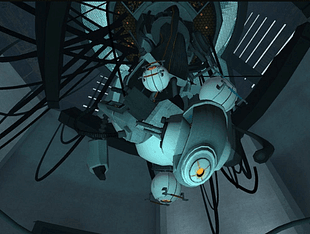
With our hero Chell being a voiceless protagonist, the strength of the games writing lies with McClain, and it is genuinely difficult to imagine anyone but her voicing the role.
Her processed voice and off-kilter delivery makes GLaDOS' voice one of video games' most endearing performances.
GLaDOS can be best described as HAL from '2001: A Space Odyssey if its AI was programmed by 90s sitcoms and the writings of O. Henry.
Oscar-winning director Guillermo del Toro was such a big fan of 'Portal' that he even gave McClain a voice cameo in his 2013 blockbuster 'Pacific Rim', saying "I very much wanted to have her in the film, because I'm a big 'Portal' fan".
Valve Time
In a lot of ways, 'Portal' represented everything that was pure and magical about Valve.
They prided themselves on ground-breaking innovations such as the gravity gun in 'Half-Life 2' and taught a generation to mod with 'Garry's Mod', but it was their quirky side-project 'Portal' that cemented their place in the history books.
Here was a studio at the top of their game releasing 5 games in a bundle package, throwing in 'Portal' as a last-minute addition, and the smallest game in the bundle ended up changing video games forever.
There is a certain amount of mythologising surrounding Valve and how Gabe Newell is essentially the gaming version of Santa Claus, but with 'Portal', Valve proved that even their small knockabout projects were just as good as their triple-AAA titles.
The 'Portal' formula has been copied in terms of its humour, esoteric design and tendency to make the game world ambiguous and elusive, but no game has ever come close to capturing the magic of 'Portal' - not even Valve themselves.
'Portal 2' is a great game by any metric, with a more sweeping and broad story, A-list talent like Steven Merchant and JK Simmons in the voice cast, more dramatic music, but it ran into the same problem as 'Max Payne 3' did.
The original 'Max Payne' games had a tighter focus borne out of necessity and a lack of resources, so when Rockstar got their hands on 'Max Payne 3', it threw the kitchen sink at the game.
'Portal 2' runs into the same problem where the game we know and love is still there, but all the money in the world can't capture what made the original game so special.
The success of 'Portal' defies logic, expectation, and all common sense, and somehow, we think GLaDOS engineered it all along.
